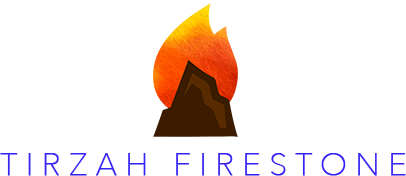Forgiveness is the Password to Divinity — Chief Brave Heart
I have a soft spot for July Fourth. I think it's because my grandparents all found refuge and opportunity here, and their gratitude magnifies my own for this great country, which opened its gates to so many for so long. But this year I have also been contemplating how our nation's dangerous underbelly—insularity, xenophobia, and white supremacy—are born of historic wounds that have still never been fully acknowledged, much less, healed.
I want to tell you about a powerful forgiveness ceremony I attended this past week, geared toward repairing our country's unhealed history. Present were elderly descendants directly affected by the Wounded Knee Massacre (1890) as well descendants of the US Cavalrymen who perpetrated it.
Our history as a country is littered with many such dark stories of hatred that have barely begun to be acknowledged, let alone healed. Our national tradition has been to turn away from our historical travesties, to save face, make no apology, grant no reparations. But the "sins of the fathers" have given a green light to all manner of racial hatred and social ruptures downstream.
How will the traumas ever end? What I witnessed this week was a kind of retroactive healing that was, in effect, a possible answer to this question.
I did not know until I got to the ritual, held on native lands in New Mexico, that scores of other people had also arrived from around the world to release their historical traumas, too. People from Israel and Palestine came to heal the wounds of their peoples' conflict, as well as German and Austrian descendants of Nazi perpetrators who wanted to heal the onus of their ancestors' deeds.
The Lakota chief who initiated the ritual is an elder named Basil Brave Heart. A decorated Korean War veteran from South Dakota, Brave Heart told us that his grandmother taught him as a little boy about the life giving power of forgiveness. She had been carrying the pain of the Wounded Knee massacre herself and felt it would kill her if she didn't intentionally put it out of her heart. She taught him a sacred chant that he in turn taught us.
The Chief asked participants to write down their personal and tribal grievances along with prayers for their release. These were brought to the ritual as small prayer bundles. I was asked to bring a Jewish symbol "associated with a people that has been traumatized as much as indigenous people… to increase the sacred vibration that supports the healing prayers being offered." So my prayer bundle consisted of two silver Shabbat candlesticks that had survived Nazi plundering (their Polish family did not) wrapped up in a shawl.
The day was filled with drumming and sacred Lakota chants—calls to the Divine for help lifting up our sin, and allowing the possibility of forgiveness. As thunder rolled at day's end, we encircled a large bonfire into which the prayer bundles were cast. I and many Jews there prayed for the healing of wounds inflicted upon our people, and for the many atrocities committed against the indigenous peoples of this great land we now inhabit.
It was life changing to stand in this global community, surrounded by people of so many colors, religions, and continents, all of us feeling the urgency to release our ancestral wounds. The call to let go of grievances, to stop cycles of trauma and hate set in motion generations ago, is louder and louder these days. Our children depend upon us and, I believe, our ancestors do, too, to heed this call. The readiness of the Wounded Knee community to forgive that atrocity and the descendants of its perpetration to own their ancestors' guilt gives us all hope that we too can forgive the unforgivable, and change the pattern of history.
“Forgiveness is the password to divinity," said Chief Brave Heart.

